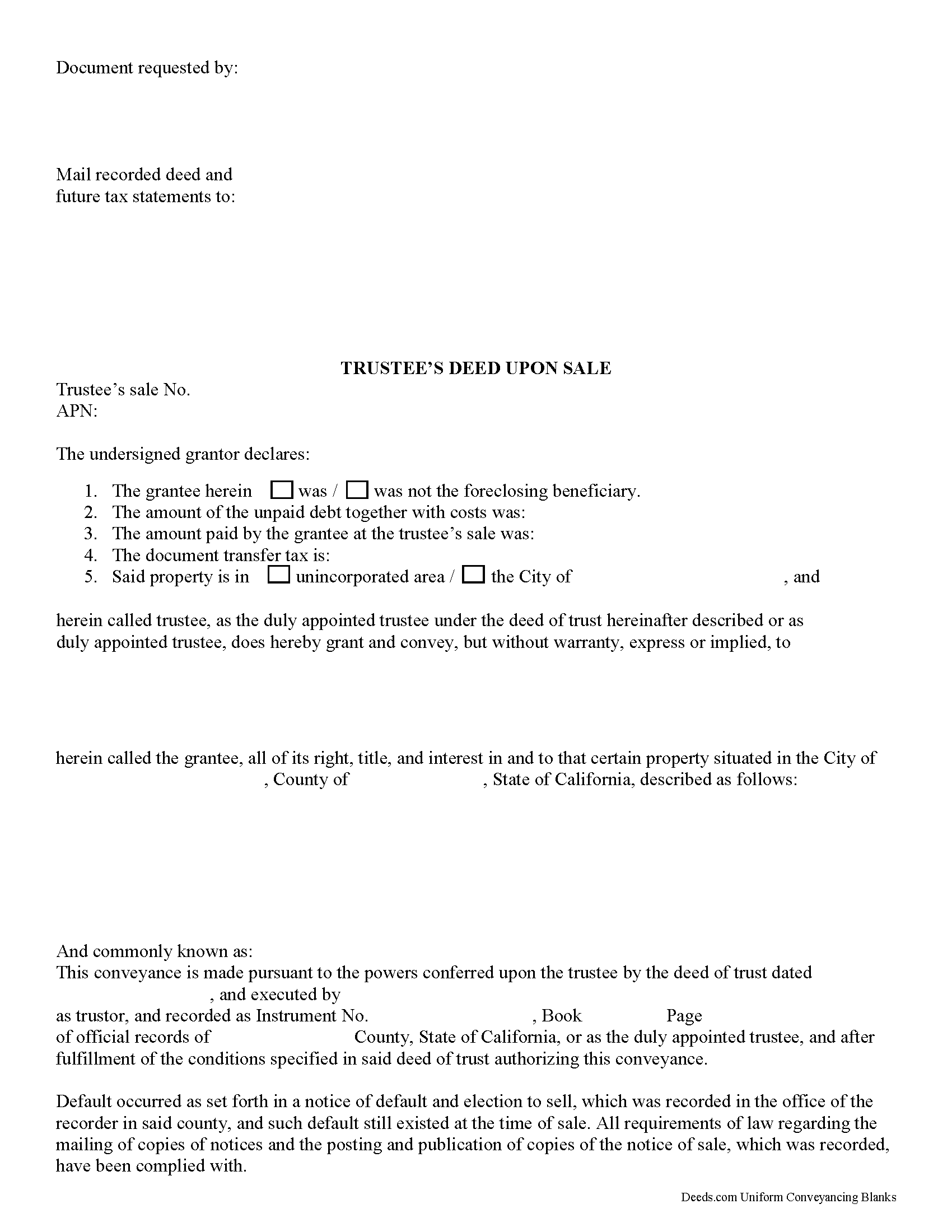Download California Trustee Deed Legal Forms

California Trustee Deed Overview

In California, a deed of trust is used as a mortgage alternative to secure a loan for real property. The borrower is the trustor of a deed of trust, and a trustee (usually an agent of the lending institution) is named as grantee, with the lending institution (secured lender) as the beneficiary (Cal. Civ. Code 2929.5(e)(1),(5)). The trustee's duty is to either reconvey the title upon satisfaction of the loan, or to initiate foreclosure as directed by the beneficiary.
Under the terms of the deed of trust, the beneficiary can initiate a non-judicial foreclosure if the trustor defaults on the loan or fails to satisfy the terms of the trust. The trustee is obligated to carry out certain steps before the foreclosure sale can take place. These processes, as well as mandates for the sale, are governed by Cal. Civ. Code 2924-2924h. Once the sale ends, the highest bidder receives a trustee's deed confirming the transfer of title. The trustee's deed is named for the trustee, who executes the deed and acts as the grantor.
The trustee's deed confirms the information from the deed of trust, including the trustor name (the borrower), the trustee, and the beneficiary (lender) under the deed of trust, in addition to vesting title in the grantee's name. If the property receives no bids at public auction, title reverts to the beneficiary of the deed of trust.
The deed must comply with format and content requirements for instruments concerning real property (warranty deed, quitclaim deed, etc.) laid out in Chapter 6 of the Government Code, and be signed by the trustee and notarized with an all-purpose acknowledgment before it is recorded and filed in the county where the property is located.
Note that a deed of trust is separate from a living trust. While the deed of trust functions as a sort of mortgage, a living trust is used for estate planning. In living trusts, a trustee uses a quitclaim deed or special warranty deed to convey property into and out of the trust and has other duties in managing the living trust. The trustee under a deed of trust is not bound by statutes governing a general trust.
Because foreclosures can be complicated, contact a lawyer with any questions or for help regarding your unique situation.
(California Trustee Deed Package includes form, guidelines, and completed example)